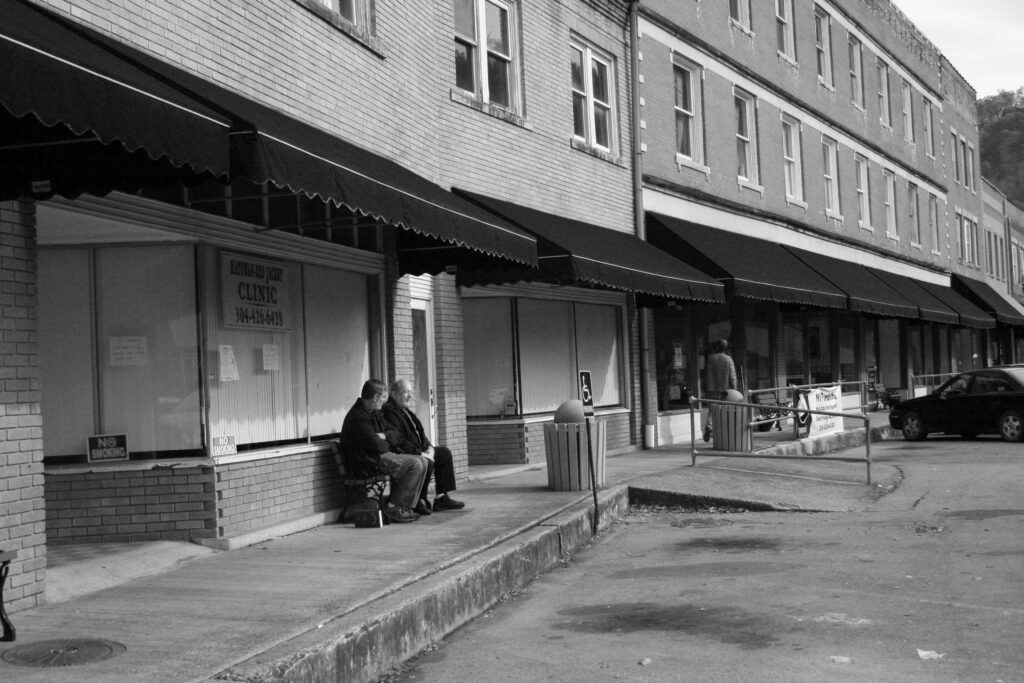Dear Mr. Vance,
I read your book Hillbilly Elegy last year. Actually, my family and I listened to it as a free trial on Audible while traveling back and forth to visit my grandfather in the hospital. He was a career coal miner by the way.
Several friends and colleagues had advised me not to waste my time and money, but after being queried by multiple journalists (and a few audience members at lectures), I could no longer avoid it.
Everything I had read or heard about your book from fellow Appalachians was correct. Ivy Brashear’s article “Why Media Must Stop Misrepresenting Appalachia” hit the nail on the head, as did R. Mike Burr’s “The Self-Serving Hustle of ‘Hillbilly Elegy’”. In light of their articles, I did not feel it necessary to restate what these true Appalachian’s have already stated: you sir, had no authority whatsoever to speak on behalf of Appalachian people as if you are one of our own.
Still, the subject comes up and people continue to ask my opinion of your infernal book. So I’ve chosen this method of addressing it.
I’ll start by saying that Hillbilly Elegy is the first audiobook I’ve listened to. Though many people see the format as the lazy person’s method of reading, I’m glad I chose it for your book. Otherwise, I wouldn’t have known that you pronounce Appalachia as “Appalashia.” Strike one Mr. Vance. No honest-to-God self-respecting Appalachian “Hillbilly” pronounces their ancestral home “Appalashia.” That is the term for northern Appalachia or the term people use who do not come from the coalfields you profess to have such close ties to. The only other people who pronounce it as such are those who have gotten so far above their raising they have disconnected themselves from what it is to be true mountain people.
Your lack of Appalachian credentials also became painfully obvious as you spent time embellishing the caricatures of your extended family in eastern Kentucky (and a few others you encountered on various trips to Jackson). A true Appalachian has felt the ridicule from these stereotypes. We notice when people talk to us more slowly because of our accent. We know that they are hearing Dueling Banjos in the back of their minds and recalling images from the movie Deliverance. A true Appalachian struggles with speaking about our own in ways that reinforces such stereotypes. Instead, many Appalachian authors work to contextualize our situation.
What you have done is exactly what so many other journalists from outside the region have done. You make meager attempts to lift up a few positive cultural traits with words such as “loyal” and “family oriented” in order to counter the stereotypes you then reinforce as a way to generate readership. You generated more “grist for the media mill” as Ron Eller so succinctly put it 30 years ago. Did you read his book, Miner’s, Millhands, and Mountaineers?
Yes, it is true that Appalachia has many of the people you described. There are people who lack work ethic, people who have strained morals and values. There are people who do drugs, who lie, cheat and steal. But these are issues not specific to our region. These are issues of poverty that occur within similar systemic power structures that abuse and exploit entire communities. When people are given little opportunity in the way of meaningful employment or educational attainment, what are we to expect? Why did you fail to include this perspective in your book?
Had you any actual merit as an Appalachian Hillbilly, your book would have been chock full of the external issues creating our intense poverty. Why didn’t you mention the inequality in land and mineral ownership? In other words, that the majority of land in Appalachia is held by absentee landowners (many of whom are corporate) who pay very little in property taxes. Why didn’t you then explain how this lack of revenue impacts the public education system, thereby creating a lack of social mobility going back four generations?
No, you believe that since you could succeed, anyone can. Let’s not forget, you didn’t have to attend a school in the coalfields. As one Air Force recruiter told my brother, “If the Air Force was looking to recruit a potential pilot, and it’s up between a valedictorian from Clintwood High School and a valedictorian from Dobyns-Bennet [Kingsport, TN], the kid from Dobyns-Bennet would get it hands down. They had more and better classes and teachers. That’s just the way it is.”
Your book was purely topical and only served to enhance your wealth, provide you false acclaim as an Appalachian spokesperson (to a nation of people who already think they know what’s wrong with Appalachia), and let’s not forget—work to advance a budding political career.
For the rest of us, your book has just been another roadblock in bringing justice to the people of our region.
Sincerely,
Nick Mullins

